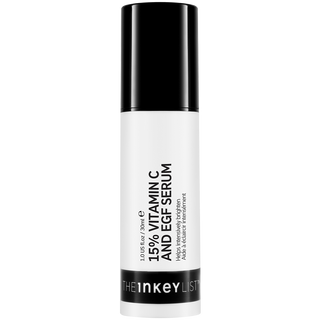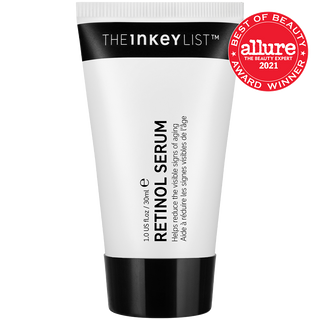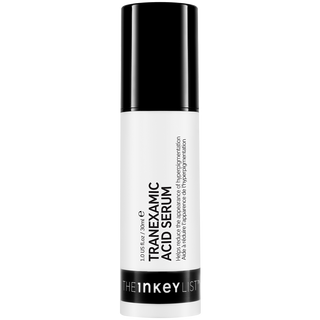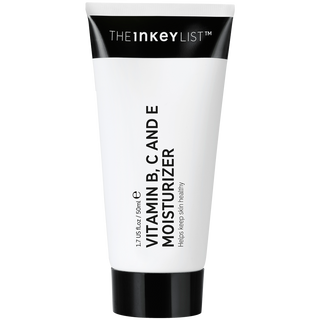Vitamin C: What you need to know
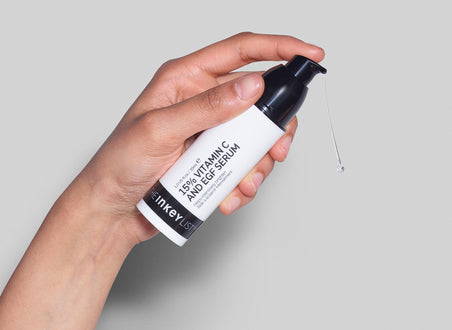
Vitamin C has become one of the most popular ingredients in modern skincare, with a whole host of brilliant benefits and capabilities. But it can often be a slightly misunderstood ingredient, thanks to its several forms and certain stipulations that are important to follow when using it. Here, we lay out everything you need to know about using Vitamin C in your skincare, from how to choose the right one to the rules to abide by if you’re new to it.
What is Vitamin C and how is it used within skincare routines?
Vitamin C is an antioxidant that is known to neutralise free radicals that damage the skin, including those found in UV lights, pollution, city smoke, and cigarettes. Free radicals can cause all sorts of damage on the skin, from compromising its moisture barrier, to affecting its texture and colour.
Vitamin C is found in plenty of fruits and vegetables, and is essential to the growth and repair of tissues within the body, including the skin. The ingredient aids in the skin's regeneration process, meaning the body can repair damaged skin cells more quickly and effectively.
This is why Vitamin C is so popular within topical skincare; it works wonders for the skin, and has a long list of benefits, which we will get onto now.
What are the benefits of Vitamin C in skincare?
Vitamin C truly is a bit of a wonder ingredient in skincare, and it’s easy to see why so many turn to it for help. These four are the most impressive benefits to know about:
Protecting from outside aggressors like pollution: As mentioned, this is perhaps where the ingredient shines the most. As a potent antioxidant, it has the power to neutralise damaging free radicals that can damage the skin, therefore keeping it strong and healthy. Things like pollution, cigarette smoke, UV rays, and even stress have a harder time beating down our complexions when vitamin C is involved.
Brightening: Vitamin C is known to offer a brightening effect all over, meaning the ingredient is a dream for dullness. Continued use will give you a noticeable glow, and because it perks up tired-looking skin, it’s perfect for use in the morning when you may be feeling tired and not prepared to face the day.
Helping with pigmentation and dark spots: Vitamin C is clever, as it can inhibit the skin's melanin production, which can lead to dark spots and hyperpigmentation. This means the ingredient does well to fade dark spots, but does so without affecting the skin's normal pigmentation.
Helping to stimulate collagen production: Perhaps a slightly lesser known benefit of this genius ingredient is the fact it helps to stimulate collagen production within the skin. Collagen is essential to keeping skin looking bouncy and plumped, and as we get older, our levels go into free-fall. Vitamin C can help get things back on track.
When should you use Vitamin C?
In terms of when you should use it in your routine, in serum form, it slots nicely in between your cleanser and moisturiser/SPF, and should be applied before any heavier treatments or serums. However, if you choose a Vitamin C moisturizer, you’ll want to apply this last in your routine.
While you can absolutely use Vitamin C in the evening, your skin will actually benefit most from the ingredient in the morning. You see, as it really shines in its ability to protect against pollution and UV rays, as well as perking up tired, dull skin, it is naturally more suited to a morning regime.
However, as we will go into later, it’s important to note that Vitamin C reacts to light, meaning you’ll need to wait until it’s properly absorbed before going out into the world and exposing it to light.
Important things to know about Vitamin C
Use SPF with Vitamin C
Wearing SPF alongside your vitamin C can actually boost its benefits in a way, too. When used together, the two products take on UV exposure and the free radical damage that comes with that with a ‘one, two punch.’. Try our SPF 30 Daily Sunscreen.
Don’t mix vitamin C with these ingredients
Vitamin C is an active ingredient, therefore it must be slotted into your existing routine with care, particularly if you use other ingredients that may not work well alongside it.
Retinol Serum, for example, is best left aside when you’re applying your Vitamin C. You can absolutely still use both ingredients, but it's advised you do so at different times. For example, using Vitamin C in the morning for brightening and protective purposes works well, while retinoids (which cause sun sensitivity) should usually be reserved for night time.
AHAs and other exfoliating ingredients are also best left to a different part of the day, or on alternating days when you may not use Vitamin C. It is possible to use both during the same routine, but it can also be a recipe for sensitivity, meaning we advise sticking to one potent active or the other in each morning or night time routine.
The only ingredient you absolutely must not use alongside Vitamin C is benzoyl peroxide. Products with benzoyl peroxide will oxidize your Vitamin C, making it less effective.
There are different forms of Vitamin C
There is more than one type of Vitamin C which is used in skincare, and certain skin types will work best with certain forms. Ascorbic acid (also known as L-ascorbic acid), for example, is often considered the most stable form of vitamin C, and does a good job at penetrating the skin layer for effective results. This type of the ingredient is also water soluble, meaning it is usually featured in lighter products that work well with oily skin types.
Other types of vitamin C include ascorbyl palmitate and tetrahexyldecyl ascorbate, both of which are lipid-soluble, making them a good choice for dry or mature skin types.
Whichever form you choose, you’ll want to be aware of the product’s concentration rate. These can range anywhere from 5% to 30%, but it is generally agreed that anything below 10% likely won’t have much of an impact on skin. If you have sensitive skin, it’s recommended you start lower, and you can always work your way up to the higher concentrations.
Introduce Vitamin C slowly
This leads nicely on to our next point: introducing Vitamin C slowly and carefully into your existing routine. As we've already established, this can be a fairly unstable ingredient, and one that is also potent. If you're new to Vitamin C, stick to a low concentration, and begin to use the product occasionally rather than regularly, for example, 2-3 times a week to start with. If you experience tingling, you can always mix one to two drops of Hyaluronic Acid Serum into your Vitamin C to dilute. If irritation continues however, it’s best to stop using said product.
Vitamin C can go ‘off’ quickly
As well as being slightly volatile in nature, Vitamin C is also highly sensitive to air and light in comparison with many other ingredients. When exposed, it becomes oxidized and thus, less stable as an ingredient and even less effective on the whole. You’ll be able to tell if a product has oxidized by its colour; it should be fairly light or colourless usually, and when oxidized, it will turn yellow or brown instead. For this reason, most Vitamin C formulas you’ll find these days will be stored in opaque packaging, meaning less exposure to light. When opening your product, try to remember to always add the lid or top on immediately afterwards, to ensure the least exposure to air.
The INKEY Vitamin C wardrobe:
So which Vitamin C formula should you use? Our range is extensive, meaning there are options for all skin types.
This serum is an ideal starting point for newcomers to the ingredient. It delivers a powerful dose of Ascorbyl Glucoside (which converts to pure Vitamin C on the skin’s surface), while also remaining delicate and gentle.
Best for those already accustomed to Vitamin C, this creamy balm features 30% pure L-ascorbic Acid, meaning it’s excellent for oily skin. It also works brilliantly as a base for makeup.
If you’re keen to start small and combine Vitamin C into your routine in a seamless way, this multi-vitamin moisturizer is a brilliant all-rounder, with Niacinamide and Vitamin E also in its INCI list.
This gel treatment works wonders for hyperpigmentation, uneven patches and dark spots, and as well as its star ingredient, also contains 2% Vitamin C for an added brightening boost.
If brightening and targeting dullness is your main aim, this moisturizer will be a great option for you. Containing plant clary sage, and Kakadu plum extract, it’s a great source of Vitamin C.


